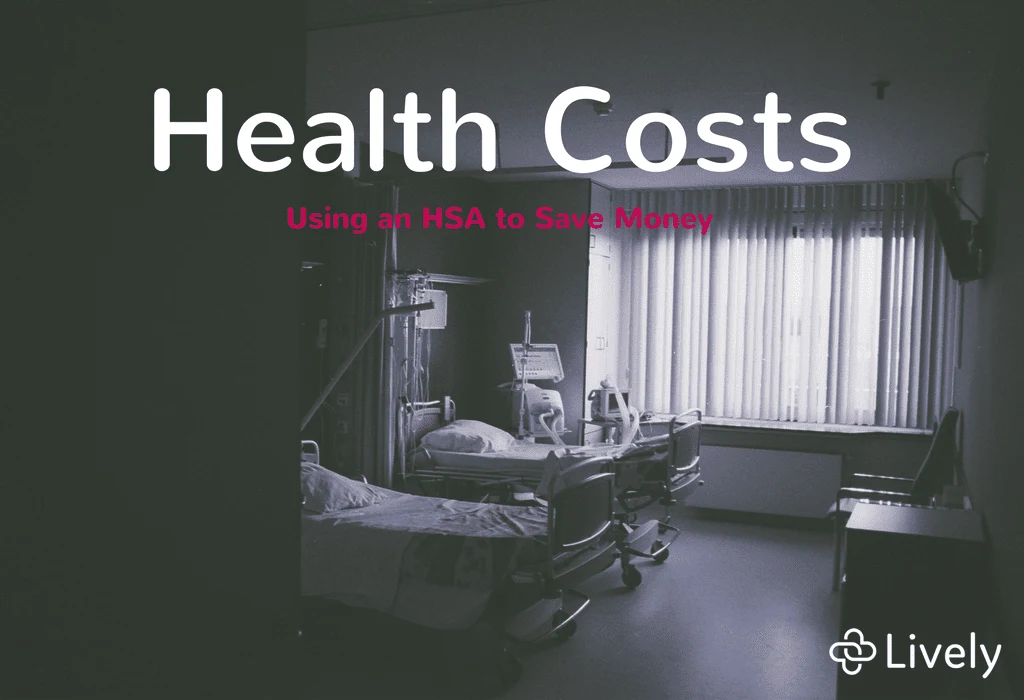The Lively Blog
SIGN UP FOR OUR
Newsletter
Stay up to date on the latest news delivered straight to your inbox
How to Pay for Healthcare Costs
Lively · September 11, 2017 · 4 min read

The most common criticism of HSAs is that they don’t help pay for medical expenses and as such, they are often pigeoned holed as a great savings tool for the young or wealthy, but not help for the average American. We think this is mostly a misconception. Let me show you how to use an HSA, even if you can’t make regular contributions, due to financial constraints.
HSA Requirements
You must be covered by an HSA-Eligible health plan, like a high-deductible health plan (HDHP). These plans have lower premiums and higher deductibles than traditional healthcare plans.
Under 2017 federal regulations, HDHPs that qualify must have deductibles of $1,300 or more for an individual and $2,600 for a family and annual out-of-pocket maximums of $6,550 for individuals and $13,100 for families. If your employer does not offer an HSA as part of your high deductible health plan, you can sign up as an individual (or family) and contribute.
Establish an HSA
The most important thing you can do (once you meet the HSA requirements above) is to establish an HSA. “Establishing” means different things and unfortunately it varies state by state. In some states, its as simple as opening up an account. See your tax professional for more information. In other states, it means you have to open the account and fund it with as little as $0.01. The importance of establishing an HSA, is that you can use HSA funds for expenses incurred before your account actually had the money in it! That’s right, you can back-date it and reimburse yourself when you do have enough money in your account. Any costs (based on purchase date), post-HSA establish date are eligible. Establishing an HSA just adds more flexibility to your healthcare payment options. This isn’t universal, but a Lively individual HSA is free, and you can sign up in minutes!
Paying for Health costs with an HSA
Based on the IRS HSA guidelines we noted above, you can pay for qualified out-of-pocket medical expenses using your HSA, after they occur. This means you can make one-time contributions to pay for medical bills or expenses (prescriptions, etc).
Why would you do this? To take advantage of the tax-free money. HSAs allow for tax-deductible contributions, tax-free interest/investment gains and tax-free withdrawals (for qualified medical expenses) which means you can use tax-free money from your HSA to pay for health expenses. For many, this means a 25%* savings off the retail cost. Then use your HSA debit card to pay for those expenses or upload your receipts to get reimbursed. It’s that simple. Find ways to save money, with no additional cost to you. It can make a big financial difference.
It is also important to note, that if you make contributions and don’t use them, unlike an FSA, there is no “use it or lose it policy,” so you can use that money for qualified health costs for years to come.
Employer HSA Contributions
Everything we have covered so far is based on individual HSA contributions. Employers can also contribute to your HSA. In fact, over 33% of employers did contribute to their employees HSAs in 2016. This created long-term value for employers for this year and years to come. That is health savings value you can take with you, each year and even when you leave your job. An HSA is the only dedicated long-term health savings option.
We don’t want to suggest you shouldn’t make regular contributions to your HSA to help save for out of pocket medical costs for today and into retirement, but we wanted to showcase HSA options if this isn’t your current financial situation and help uncover additional ways to use your HSA to your health and financial advantages under current IRS guidelines.
If you need more help with HSA decisions, check out our blog. We will make you a healthcare benefits expert in no time, without any extra work or effort on your end.
*25% – assumes income taxes (both federal and state) of 25% or more per individual or family.

Benefits
2025 and 2026 HSA Maximum Contribution Limits
Lively · May 9, 2024 · 3 min read
On May 9, 2024 the Internal Revenue Service announced the HSA contribution limits for 2025. For 2025 HSA-eligible account holders are allowed to contribute: $4,300 for individual coverage and $8,500 for family coverage. If you are 55 years or older, you’re still eligible to contribute an extra $1,000 catch-up contribution.

Benefits
What is the Difference Between a Flexible Spending Account and a Health Savings Account?
Lauren Hargrave · February 9, 2024 · 12 min read
A Health Savings Account (HSA) and Healthcare Flexible Spending Account (FSA) provide up to 30% savings on out-of-pocket healthcare expenses. That’s good news. Except you can’t contribute to an HSA and Healthcare FSA at the same time. So what if your employer offers both benefits? How do you choose which account type is best for you? Let’s explore the advantages of each to help you decide which wins in HSA vs FSA.

Health Savings Accounts
Ways Health Savings Account Matching Benefits Employers
Lauren Hargrave · October 13, 2023 · 7 min read
Employers need employees to adopt and engage with their benefits and one way to encourage employees to adopt and contribute to (i.e. engage with) an HSA, is for employers to match employees’ contributions.
SIGN UP FOR OUR
Newsletter
Stay up to date on the latest news delivered straight to your inbox
